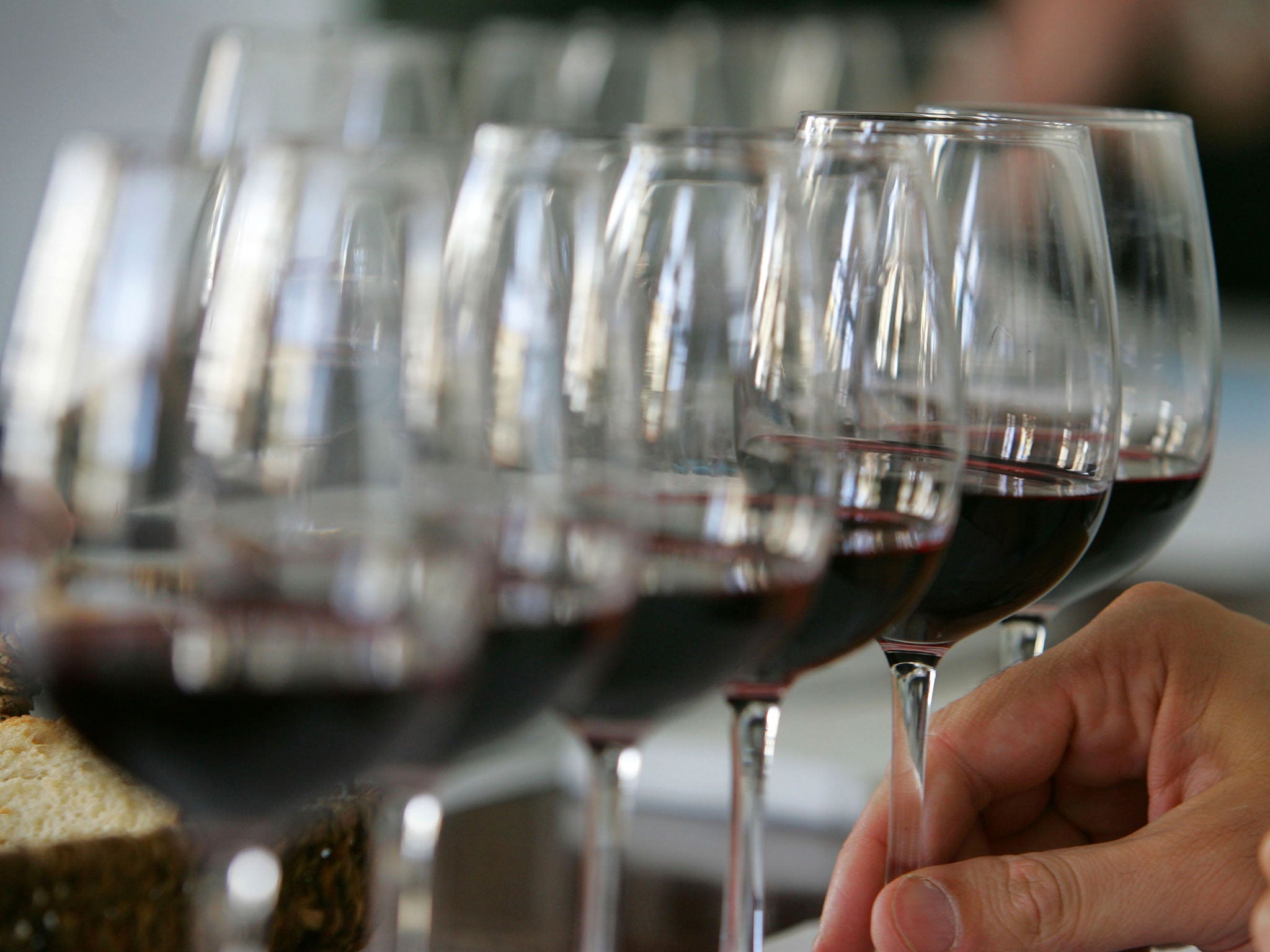Why Britain could soon produce better wines than France
Wine depends on soil and latitude as much as on warm summer temperatures


When my name finally reached the top of my local allotment waiting list, I was offered a choice of three plots. Two were well-cultivated, with neat beds and paths. The third was completely overgrown, covered in weeds and grass, but standing in the corner was something that anyone who craves the grow-your-own lifestyle would want: a gigantic, sprawling grapevine.
It won’t surprise you to learn that I chose that plot. Grape cultivation for wine is as old as civilisation; it is entwined in religion, art and literature. Viticulture is itself a form of religion. Galileo said: “The sun, with all those planets revolving around it and dependent on it, can still ripen a bunch of grapes as if it had nothing else in the universe to do.” So British practitioners of this religion will be delighted at research from Harvard University suggesting that this country could soon be producing better wines than the French.
This may sound like heresy to adherents of appellation d’origine contrôlée, but Dr Elizabeth Wolkovich of Harvard says a “threshold” could soon be crossed where rising temperatures will make it too hot in France to produce decent wines, with periods of extreme heat making flavours deteriorate. Instead, the UK – mainly areas of the southeast of England – will become the centre of European wine production. The warmer weather without extreme drought leads to earlier harvests, say the researchers, which produce better wine.
It is true that English wines are enjoying a boom. The South East, in particular, has the perfect conditions for sparkling wine: chalky soil, similar to the Champagne region in northern France, and a relatively cooler climate, which helps the grapes reach high acidity. The largest single-estate vineyard in the UK, Denbies Wine Estate in Surrey, accounts for 10 per cent of England’s wine production, while Chapel Down in Kent is another leading producer of still and sparkling wines.
There are vineyards in Wales, North Yorkshire and the South West, all producing decent, drinkable bottles of wine. If only George Osborne could recognise the success of the British wine market, instead of raising duty on wine and sparkling wine as he did in last week’s Budget – but I guess he’s preoccupied elsewhere.
The French may jealously guard the Champagne name but last year, for the first time, a champagne producer bought land in the UK. Taittinger, the French champagne house, will produce English sparkling wine within the next five years, after buying up a former orchard in Kent. Is this a sign of the entente cordiale (or should that be cordial?) at work or a major concession by the French that, just like restaurants in London are beating those in Paris on quality, we Brits are beating them at their own game?
Last year, two English wines – Hambledon Classic Cuvée, a fizz from Hampshire that promises a taste of “fresh sourdough, magnolia and lily scents with a hint of smoke over a core of greengage, red plums and dessert apples”, and Nyetimber Classic Cuvée, a sparkling wine from Sussex which is “toasty, spicy” with “honey, almond, pastry and baked apple flavours” – beat champagnes including Veuve Cliquot and Taittinger in a blind taste test for wines priced under £40 by Noble Rot magazine. The French are so obsessed with spraying vines with pesticides and herbicides to achieve AOC status that organic wines, which can produce unique flavours, are rare in that country.
This all bodes well for my own grapevine, a black grape called Boskoop Glory, which has produced literally hundreds of bunches every late summer since I inherited it. My first attempt at winemaking was a disaster. My other half, tasting the first glass after six months of fermentation, described “aromas of vinegar with an aftertaste of metal”. But it is true that, after a heatwave, the grapes ripen more quickly and taste better. This year, armed with the endless optimism of the British gardener, I am sure I will be bottling a Châteaux Merrick 2016 vintage.
But are we getting carried away with the potential of British wine? There is, after all, so much more to producing a decent wine than climate: the right grape can be planted anywhere in the world, but the wine it produces depends on the soil and latitude as much as on warm summer temperatures. The chalky soils that create French-beating sparkling wines are one thing. But look at the depth and variety of wines from regions in France that are defined by their soil as well as the weather: Chablis on rich clay, Bordeaux on sandy loam, and the hard granite in southern Burgundy that produces the light, fruity Beaujolais. And, although French are regarded as superior to Italian and Spanish vintages, no one could argue that those two southern European countries, which have long, scorching summers, don’t produce excellent wines.
Galileo may have been right about the sun – but as anyone who has tried to rack gallons of wine will tell you, it’s about the soil, too.



Join our commenting forum
Join thought-provoking conversations, follow other Independent readers and see their replies